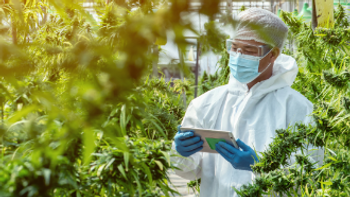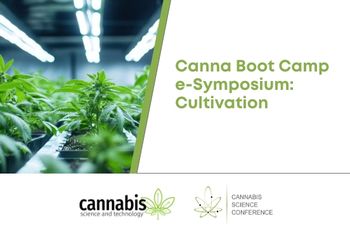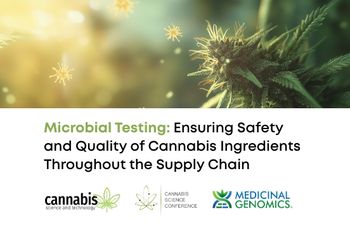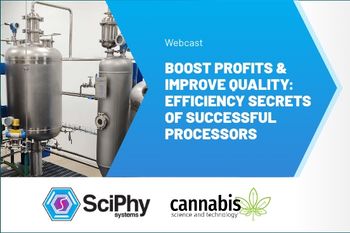
Assuring Regulatory Compliance in Cannabis Testing: GC/MS/MS Analysis of the “Fast-5” Pesticides and What’s New in the World of GC/MS Testing
Join us for this webcast to learn about when you need to use GC/MS/MS in cannabis pesticide testing, how a single-stream sample preparation amenable to both LC/MS/MS and GC/MS/MS improves robustness and increases productivity, and the latest analytical approaches for the analysis of terpenes and residual solvents in cannabinoid products.
Register free:
Event Overview:
In Canada and states of the U.S.A. where medicinal or recreational cannabis programs have been legalized, compliance with localized regulatory quality and safety testing requires a suite of analytical tools. Ensuring residual pesticide levels in cannabis plant or cannabinoid products do not exceed defined upper limits is arguably the most difficult of the required assays. In the U.S. and Canada, most of the pesticides in the regulatory lists are tested using liquid chromatography/tandem quadrupole mass spectrometry (LC/MS/MS). However, many of the target pesticide lists include compounds not amenable to electrospray ionization (ESI), most commonly used in LC/MS/MS applications. In this case, gas chromatography/tandem quadrupole mass spectrometry (GC/MS/MS) using electron ionization (EI) is required. This presentation will discuss the rationale for GC/MS/MS use in cannabis regulatory testing and describe a novel method for the analysis of five pesticides that do not respond well to ESI. The methodology is designed to partner with LC/MS/MS to provide a fast, complete, robust, and reproducible workflow from sample preparation through final reporting. We will also present new analyses “on-tap” at Agilent for terpenes and residual solvents in cannabis and cannabinoid products using GC/MS techniques.
Key Learning Objectives:
- How a single-stream sample preparation amenable to both LC/MS/MS and GC/MS/MS improves the robustness and increases productivity for the analysis of residual pesticides in cannabis matrix
- Why GC/MS/MS is also required for the analysis of certain pesticides in Canada and certain states of the U.S.A.
- The latest analytical approaches for the analysis of terpenes and residual solvents in cannabinoid products
Speaker: Anthony Macherone, Ph.D., Sr. Scientist & Strategic Program Manager, Agilent Technologies, Inc., Visiting Professor, Johns Hopkins University School of Medicine
Time and Date: Tuesday Jan. 21, 2020 at 2pm EST | 1pm CST | 11am PST
Thursday, Jan. 30, 2020 at 2pm EST | 1pm CST | 11am PST
On demand available after final airing until Jan. 30, 2021
Sponsor: Agilent Technologies
Register free:
Newsletter
Unlock the latest breakthroughs in cannabis science—subscribe now to get expert insights, research, and industry updates delivered to your inbox.




